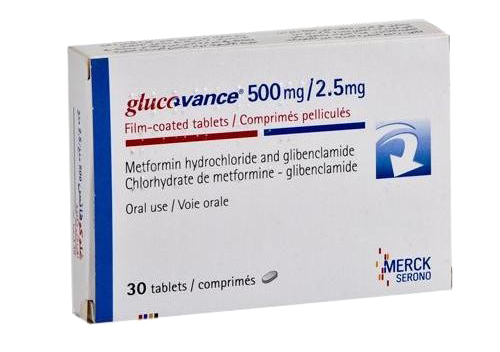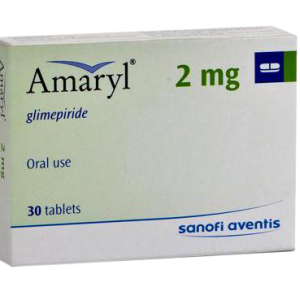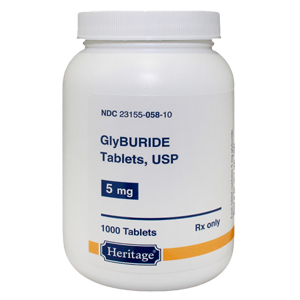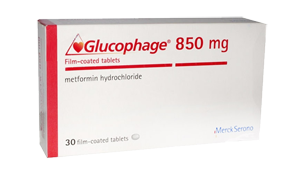What is Glucovance?
Glucovance contains a combination of glyburide and metformin. Glyburide and metformin are both oral diabetes medicines that help control blood sugar levels.
Glucovance is used to treat type 2 diabetes. This medicine is not for treating type 1 diabetes.
Glucovance may also be used for purposes not listed in this medication guide.
Important information
You should not use Glucovance if you have kidney disease or are in a state of diabetic ketoacidosis (call your doctor for treatment with insulin).
If you need to have any type of x-ray or CT scan using a dye that is injected into your veins, you will need to temporarily stop taking Glucovance.
Some people develop lactic acidosis while taking metformin. Get emergency medical help if you have even mild symptoms such as: muscle pain or weakness, numb or cold feeling in your arms and legs, trouble breathing, stomach pain, nausea with vomiting, slow or uneven heart rate, dizziness, or feeling very weak or tired.
Before you take Glucovance, tell your doctor if you have liver or heart disease, a history of heart attack or stroke, or an enzyme deficiency called glucose-6-phosphate dehydrogenase deficiency (G6PD).
Before taking this medicine
You should not use Glucovance if you are allergic to glyburide or metformin, or:
if you have kidney disease;
if you are also using bosentan (to treat pulmonary arterial hypertension); or
if you are in a state of diabetic ketoacidosis (call your doctor for treatment with insulin).
If you need to have any type of x-ray or CT scan using a dye that is injected into your veins, you will need to temporarily stop taking Glucovance.
Some people taking metformin develop a serious condition called lactic acidosis. This may be more likely if you have liver or kidney disease, congestive heart failure, a severe infection, if you are dehydrated, or if you drink large amounts of alcohol. Talk with your doctor about your risk.
To make sure Glucovance is safe for you, tell your doctor if you have:
an enzyme deficiency called glucose-6-phosphate dehydrogenase deficiency (G6PD);
liver disease; or
heart disease or a history of heart attack or stroke.
FDA pregnancy category B. Glucovance is not expected to harm an unborn baby. Similar diabetes medications have caused severe hypoglycemia in newborn babies whose mothers had used the medication near the time of delivery. Tell your doctor if you are pregnant or plan to become pregnant during treatment.
It is not known whether this medicine passes into breast milk or if it could harm a nursing baby. You should not breast-feed while taking Glucovance.
Certain oral diabetes medications may increase your risk of serious heart problems. However, not treating your diabetes can damage your heart and other organs. Talk to your doctor about the risks and benefits of taking Glucovance.
How should I take Glucovance?
Take Glucovance exactly as prescribed by your doctor. Follow all directions on your prescription label. Your doctor may occasionally change your dose to make sure you get the best results. Do not take this medicine in larger or smaller amounts or for longer than recommended.
Take Glucovance with meals. Your blood sugar will need to be checked often, and you may need other blood tests at your doctor’s office.
Low blood sugar (hypoglycemia) can happen to everyone who has diabetes. Symptoms include headache, hunger, sweating, confusion, irritability, dizziness, or feeling shaky. Always keep a source of sugar with you in case you have low blood sugar. Sugar sources include fruit juice, hard candy, crackers, raisins, and non-diet soda. Be sure your family and close friends know how to help you in an emergency.
If you have severe hypoglycemia and cannot eat or drink, use a glucagon injection. Your doctor can prescribe a glucagon emergency injection kit and tell you how to use it.
Also watch for signs of high blood sugar (hyperglycemia) such as increased thirst, increased urination, hunger, dry mouth, fruity breath odor, drowsiness, dry skin, blurred vision, and weight loss.
Check your blood sugar carefully during times of stress, travel, illness, surgery or medical emergency, vigorous exercise, or if you drink alcohol or skip meals. These things can affect your glucose levels and your dose needs may also change. Do not change your Glucovance dose or dosing schedule without your doctor’s advice.
If you need surgery, tell the surgeon ahead of time that you are using Glucovance. You may need to stop using the medicine for a short time.
Glucovance is only part of a treatment program that may also include diet, exercise, weight control, regular blood sugar testing, and special medical care. Follow your doctor’s instructions very closely.
Your doctor may have you take extra vitamin B12 while you are taking Glucovance. Take only the amount of vitamin B12 that your doctor has prescribed.
Store at room temperature away from moisture, heat, and light.
Glucovance dosing information
Usual Adult Dose for Diabetes Type 2:
Initial therapy:
1 tablet (1.25 mg-250 mg) orally once or twice daily with meals.
Previously treated patients:
1 tablet (2.5 mg-500 mg) orally twice daily with meals.
-or-
1 tablet (5 mg- 500 mg) orally twice daily with meals.
Comments: Glucovance should be administered at least 4 hours prior to colesevelam to ensure that colesevelam does not reduce the absorption of glyburide-metformin.
What happens if I miss a dose?
Take the missed dose as soon as you remember (be sure to take Glucovance with food). Skip the missed dose if it is almost time for your next scheduled dose. Do not take extra medicine to make up the missed dose.
What happens if I overdose?
Seek emergency medical attention. An overdose can cause life-threatening hypoglycemia.
Symptoms of severe hypoglycemia include extreme weakness, confusion, tremors, sweating, fast heart rate, trouble speaking, nausea, vomiting, rapid breathing, fainting, and seizure (convulsions).
Overdose may also cause lactic acidosis symptoms such as muscle pain, numbness, trouble breathing, vomiting, slow heart rate, and extreme weakness.
What should I avoid while taking Glucovance?
Avoid drinking alcohol. It can lower your blood sugar and may increase the risk of lactic acidosis while you are taking this medicine.
Glucovance side effects
Get emergency medical help if you have any of these signs of an allergic reaction to Glucovance: hives; difficult breathing; swelling of your face, lips, tongue, or throat.
Some people develop lactic acidosis while taking metformin. Early symptoms may get worse over time and this condition can be fatal. Stop taking this medicine and get emergency medical help if you have even mild symptoms such as:
muscle pain or weakness;
numb or cold feeling in your arms and legs;
trouble breathing;
feeling dizzy, light-headed, tired, or very weak;
stomach pain, nausea with vomiting; or
slow or uneven heart rate.
Call your doctor at once if you have:
pale or yellowed skin, dark colored urine, fever, confusion or weakness.
Common Glucovance side effects may include:
stomach pain, nausea, vomiting, diarrhea;
cold symptoms such as stuffy nose, sneezing, sore throat;
headache; or
dizziness.
This is not a complete list of side effects and others may occur. Call your doctor for medical advice about side effects.
What other drugs will affect Glucovance?
There are many other medicines that can increase or decrease the effects of Glucovance on lowering your blood sugar. This includes prescription and over-the-counter medicines, vitamins, and herbal products. Tell each of your health care providers about all medicines you use now and any medicine you start or stop using.




